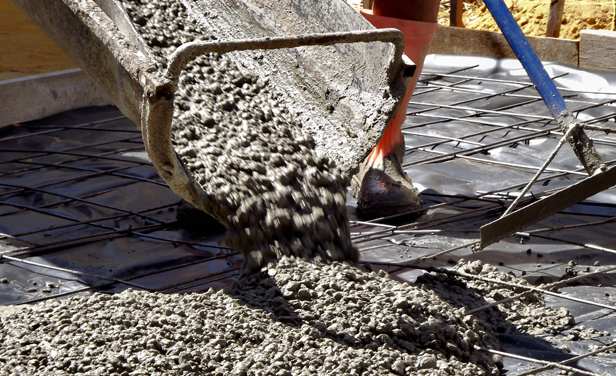ABC Concreting Pty Ltd is a concreting company that performs Concreting Works for Domestic & Commercial Customers. The owner is Peter Brown. Peter is going to see Glen who is the builder of the apartments for Apartments ‘R’ Us Pty Ltd, to look at and quote on the concrete works for their Commercial Property which is a 3 storey apartment building. Peter will survey the job, create a quote, source job materials and tools needed and sub contractors to work with him on the job.
Peter will complete one level at a time and then invoice the builder for a progress payment.
Peter needs to source the concrete from Boral Resources making sure he gets the right grade of concrete. We will need the following:
Regular concrete which is what he will use, is produced by following the mixing instructions that are commonly published on packets of cement, typically using sand or other common material as the aggregate, and often mixed in improvised containers. The ingredients in any particular mix depends on the nature of the application. Regular concrete can typically withstand a pressure from about 10 MPa (1450 psi) to 40 MPa (5800 psi), with lighter duty uses such as blinding concrete having a much lower MPa rating than structural concrete. Many types of pre-mixed concrete are available which include powdered cement mixed with an aggregate, needing only water.
Typically, a batch of concrete can be made by using 1 part Portland cement, 2 parts dry sand, 3 parts dry stone, 1/2 part water. The parts are in terms of weight – not volume. For example, 1-cubic-foot (0.028 m3) of concrete would be made using 22 lb (10.0 kg) cement, 10 lb (4.5 kg) water, 41 lb (19 kg) dry sand, 70 lb (32 kg) dry stone (1/2″ to 3/4″ stone). This would make 1-cubic-foot (0.028 m3) of concrete and would weigh about 143 lb (65 kg). The sand should be mortar or brick sand (washed and filtered if possible) and the stone should be washed if possible. Organic materials (leaves, twigs, etc.) should be removed from the sand and stone to ensure the highest strength.
Peter needs to source the Steel Mesh from Steel Suppliers Melbourne making sure he gets the right type. We will need the following:
Standard reinforcing mesh size 6.0m x 2.4m.
Steel Mesh is a metal wire screen that is made up of low carbon steel wire or stainless steel wire. It is available in various sizes and shapes. It is widely used in agricultural, industrial, transportation, horticultural and food procuring sectors. It is also used in mines, gardening, machine protection and other decorations. Weld mesh is the term given to the kind of barrier fencing that is manufactured in square or rectangular mesh from steel wire, welded at each intersection. Welded wire fabric (WWF) is also sometimes used in reinforced concrete, notably for slabs.
These are the details we need to set up:
- New Customer
- Create Quote – if accepted continue to next step
- Activity begins
- Ordering products
- Organising times with customer
- Scheduling workers (GeoOp.com)
- Scheduling the tools required
- Allocate any existing products we have in stock for the customer (ie bags of concrete)
- Prepare invoices for a progress payment after each level has been completed, knowing that there could be extra time or products required.
- Create a Purchase Order with Boral Resources for products using the customer name as a reference. We need 167 Bags of concrete and we have 25 in stock, so we need to order 142 bags from Boral.
- Work is commenced
- First level is completed – create an invoice for a progress payment.
- Second level is completed – create an invoice for a progress payment.
- Third level is completed – create an invoice for the final payment including any extra job materials that he had to purchase that wasn’t on the original quote.
- Give the invoice to customer.
- Receive each Progress Payment in 14 days from date of invoice.
- Convert the Purchase Order for Boral to a Bill.
- Make payment to Boral Resources for the supplies we purchased on account.

